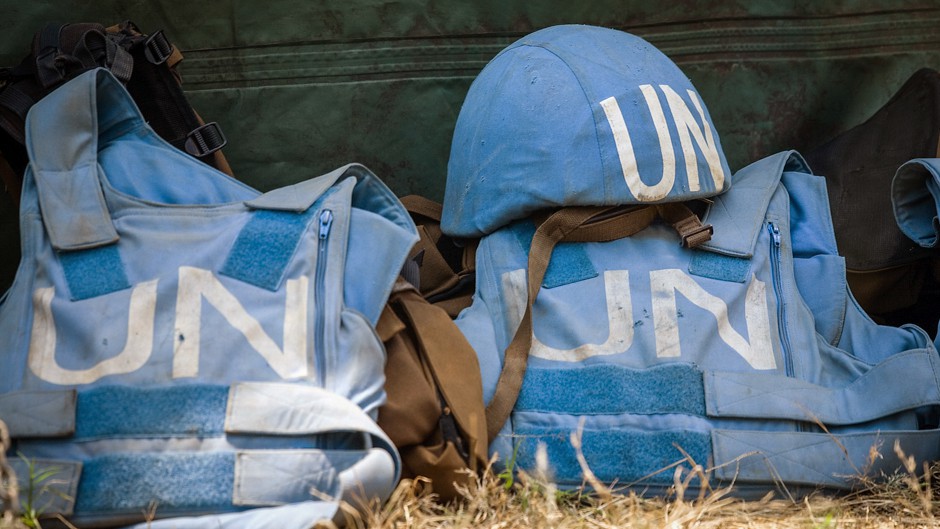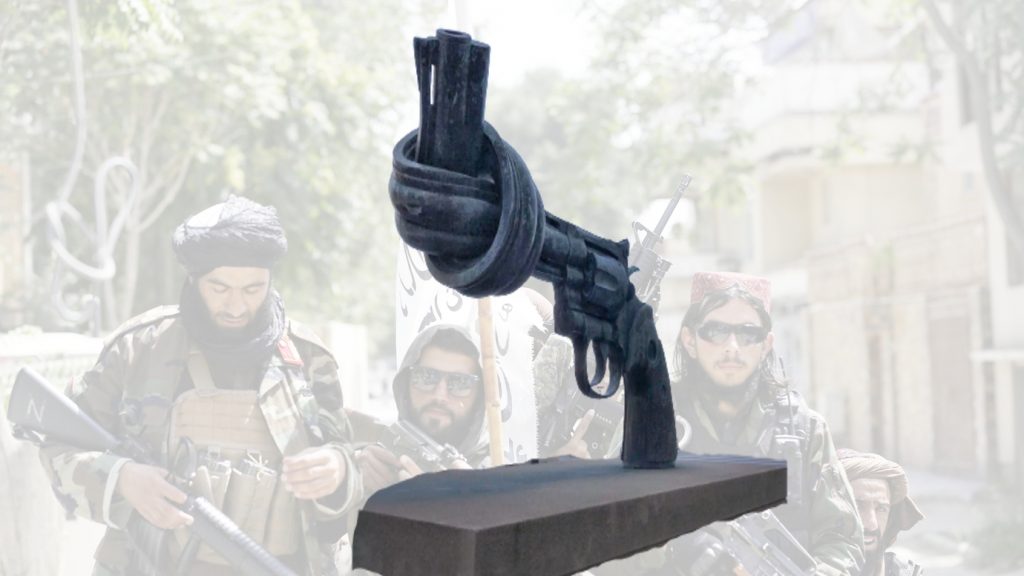In the Backdrop of the Developments in Afghanistan

- The problem in the case of Afghanistan is that most of the permanent members of the UNSC have their own vested interests instead of unbiased and necessary action over an emerging situation.
- If the objective of the US to invade Afghanistan was not nation building, was it to destroy terror outfits taking refuge in it? Hasn’t the US handed over Afghanistan to the same group it sought to vanquish initially?
- With no clear vision, the US has not only abandoned Afghan people and left them in the hands of Taliban.
- The UN today has become a web of bureaucratic procedures with all the participating nations playing politics for their own vested interests.
Afghanistan is facing one of the worst humanitarian crises of the century with the complete takeover by the Taliban. Everyone expected the fall of the Kabul government with the withdrawal of the US, but no one expected it to sink at the rate we all witnessed. Even the most pessimistic prediction was that the forces of Afghanistan could hold Kabul for at least another six months, but Afghanistan soldiers trained and equipped by United States private contractors were no match to the battle hardened Taliban. The war was won, according to many defence experts, not on ground but the moment the US signed a peace treaty with the Taliban, which was signed interestingly in the absence of the Afghanistan government. From then on it wasn’t a matter of ‘ifs or buts’ when Kabul would fall.
Whatever be the reason, it has led to some of the heart wrenching humanitarian crises the world has seen in recent history. Upon deliberation regarding the situation many questions emerge: How can a situation like this occur in this century? Haven’t we learnt the lessons from the past to prevent these circumstances? Weren’t the multinational organizations like the UNO and others started to avoid such a crisis?
With the end of World War II, UNO was established to make sure the horrors of the war were not repeated. This was the reincarnation of the League of Nations, which was started after World War I and which disastrously failed to prevent World War II.
The United Nations Security Council (UNSC) is one of the six principal organs of the UN charged with ensuring International peace and security. It consists of five permanent members with veto powers and others being non-permanent members. Permanent members of the UNSC are the United Kingdom, France, Russia, United States and China. These members have veto powers to block any resolution taken by the UNSC. The problem in the case of Afghanistan is that most of the permanent members of the UNSC have their own vested interests to consider instead of unbiased and necessary action over an emerging situation. This has made the council inefficient in such testing times. Most of the problems in Afghanistan today can be traced back to the interventions and mistakes of its members.
Developments in Afghanistan has led to some of the heart wrenching humanitarian crises the world has seen in recent history. Haven’t we learnt the lessons from the past? Weren’t the multinational organizations like the UN established to avoid such a crisis?
During the Cold War years when the former USSR and USA were competing with each other for global influence, USSR invaded Afghanistan in the pretext of bringing stability to Afghanistan which was unstable due to the constant conflict among its warlords. Although it was seen to be successful initially, the uprising of Mujahedeen and other such auxiliary groups ensured that it couldn’t achieve its goal. Afghanistan further plunged into a vortex due to the disintegration of the USSR.
The US in its blind race against the USSR funded Mujahideen and provided all the tactical support for its resistance. The US used Pakistan to create the necessary ecosystem to train terrorists in the name of religion. It funded the Madrasas along the Af-Pak border directly and indirectly to radicalize the cadre and rebel against the Soviet occupation. Pakistan provided all the necessary human resources and safe havens for short-term economical and tactical benefits. But after 9/11 when the Taliban, which was one of the offshoots of Mujahedeen, refused to hand over Osama bin Laden, the US realized the gravity of its mistake. They immediately invaded Afghanistan to remove the Taliban and handed over the country to a democratically elected government.
The President of the United States, contrary to his predecessors, recently claimed that nation building was not the real aim of the US. If the objective of the US to invade Afghanistan was not nation building, was it to destroy terror outfits taking refuge in it? If the US is withdrawing from Afghanistan, does that mean it has vanquished all terror outfits in the region? Hasn’t the US handed over Afghanistan to the same group it sought to vanquish initially? Was the objective of the US merely to find and bring the mastermind of twin tower attacks, Osama bin Laden, to justice? If this was their objective, what has the US been doing in Afghanistan since Osama was killed in 2011? Ironically Osama bin Laden was not found in Afghanistan but in Pakistan, its ally!

With no clear vision, the US has not only abandoned Afghan people and left them in the hands of Taliban but in the process of historical retreat has also gifted Taliban with modern weapons worth billions of dollars. Taliban has also become the first terrorist organization with access to air power.
China on its part has been trying to fish in the troubled waters of Afghanistan for its own regional and geopolitical ambitions and economical benefits. It is making arrangements to expand the belt and Road initiative through Afghanistan and Central Asia. It is easy to predict that China will expand its ambitious Belt and Road initiative but also has an eye on around $1 trillion worth of mineral resources in Afghanistan. Troubled Afghanistan controlled by the Taliban is a perfect environment for China to expand its influence in the region, contrary to the democratically elected government that favored India.
France and the UK being NATO allies of the US naturally follow the latter as they do not have any interest in Afghanistan other than concerns over refugee influx into their territories, which is highly unlikely as it does not share any physical border with Afghanistan.
UNHRC, a part of the UN for all its efforts and intent, is helpless in protecting the human rights in Afghanistan due to the political instability and military might of the Taliban. Beliefs of the Taliban and UNHRC run opposite to each other. Working in cross purposes, the military ambitions of Taliban limits the efforts of UNHRC.
Covid-19 is a glaring example where an important part of the UN, WHO, was unable to conduct a full enquiry regarding its origin in China, which is one of the permanent members in the prestigious Security Council.
When the scenario is due to the actions of its founding members, under what authority can the UN dictate terms to bring the situation under control? Does that mean the UN is useless and should be terminated because the problems in Afghanistan are mostly because of the actions of its most important members? Granted, no world war or nuclear war has taken place since its inception but it has failed to contain wars between nations and within nations. There is also an argument that World war and nuclear war hasn’t happened more because of the fear of mutually assured destruction rather than UN intervention. The Cuban missile crisis is a testimony to that. It hasn’t been successful in any major arbitration.
The first prime minister of India Jawaharlal Nehru went to the UN with the ambition of resolving Kashmir through arbitration which has led to passage of many resolutions with no solution in sight. The UN today has become a web of bureaucratic procedures with all the participating nations playing politics for their own vested interests. As a result of which, major superpowers are left unscathed without anyone questioning their actions and mistakes. Covid-19 is a glaring example of this where an important part of the UN, WHO, was unable to conduct a full enquiry regarding its origin in China, which is one of the permanent members in the prestigious Security Council.
There may be flaws in the UN, but it is still the only global stage where any nation can have it‘s voice heard, no matter the degree of its influence. It is high time for the UN to come up with amendments to tackle the challenges of the 21st-century and transform itself and its members with the realities of present and emerging geopolitical scenarios. The UN is one of the few global organizations which have the consensus of the majority of the nations but the rules of 1945 cannot be applied in 2021. It is the responsibility of every single nation who are the members of the UN, especially the permanent members of the UNSC to help the UN evolve. Any organization is only as good as its members. It is time for the members to rise above short-term self-serving interests and introspect and work to achieve the purpose for which the UN was established.
(The views expressed are authors own)
Shreyas has an M.Sc. in Psychology and serves in NIMHANS. He writes regularly on politics, society, international affairs and technology. Views expressed are the author’s own and do not necessarily reflect the views of SamvadaWorld or its staff.
